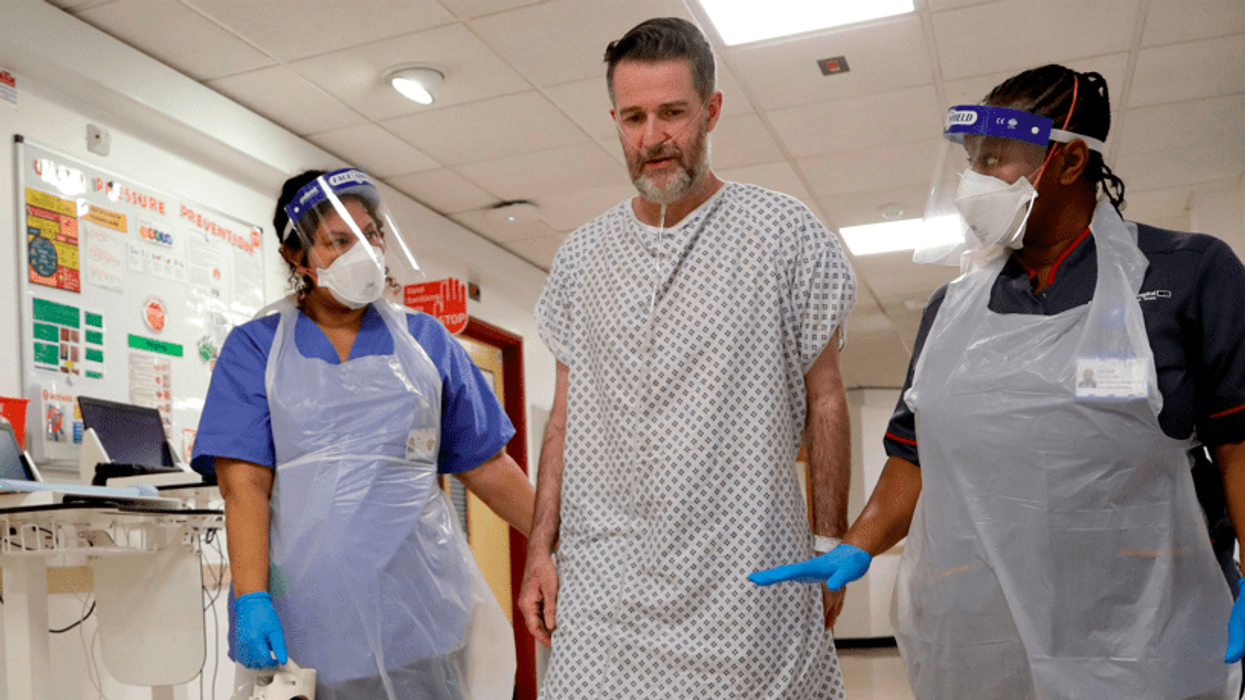A THIRD of people hospitalised with Covid-19 have “abnormalities” in multiple organs months after getting infected, a UK study said last Saturday (23), potentially shedding light on the elusive condition of long Covid.
Millions worldwide are estimated to suffer from long Covid, in which a range of symptoms such as shortness of breath, fatigue and brain fog last long after patients first contracted the virus.
Yet much about the condition, including exactly how Covid causes such a wide range of symptoms, remains unknown.
The authors of the new study, which was published in The Lancet Respiratory Medicine journal, said it marks a “step forward” in helping long Covid sufferers.
The study is the first to look at magnetic resonance imaging (MRI) scans of multiple organs - the brain, heart, liver, kidneys and lungs – after being hospitalised with Covid.
It compared the organ scans of 259 adults hospitalised with Covid across the UK in 2020-2021 with a control group of 52 people who never contracted the virus.
Nearly a third of the Covid patients had abnormalities in more than one organ an average of five months after leaving hospital, the study found.
Those hospitalised with Covid were 14 times more likely to have lung abnormalities and were three times more likely to have abnormalities in their brain, it said. However, hearts and livers appeared to be more resilient, the researchers added.
Abnormalities in the brain included a higher rate of white brain lesions, which have been linked to mild cognitive decline.
Scarring and signs of inflammation were among the changes seen in lungs.
People with multiple organ abnormalities were four times more likely to report severe mental and physical impairment, making them “unable to perform their daily activities,” lead author Betty Raman from Oxford University told an online press conference. The study was conducted during an earlier phase of the pandemic, before mass immunity from vaccination and prior infection blunted the overall severity of Covid.
It also did not cover the less severe Omicron variants which remain dominant around the world. And the Covid group was slightly older and generally less healthy than the control group, though the researchers sought to adjust their findings to account for these differences. But people are still being hospitalised due to the virus across the world, the researchers emphasised.
Study co-author Christopher Brightling of Leicester University said the study provides “concrete evidence there are changes in a number of organs” after people are hospitalised with Covid.
Matthew Baldwin, a pulmonary disease specialist at Columbia University not involved in the study, said “these results suggest that long Covid is not explained by severe deficits concentrated in any one organ”.
“Rather, the interaction of two or more abnormalities in organs might have an additive or multiplicative effect in creating physiological deficits that result in long Covid symptoms,” he wrote in a Lancet comment article.




